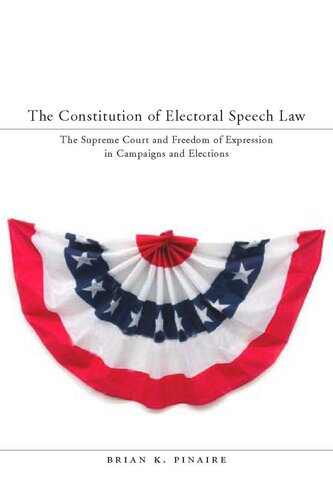

Most ebook files are in PDF format, so you can easily read them using various software such as Foxit Reader or directly on the Google Chrome browser.
Some ebook files are released by publishers in other formats such as .awz, .mobi, .epub, .fb2, etc. You may need to install specific software to read these formats on mobile/PC, such as Calibre.
Please read the tutorial at this link: https://ebookbell.com/faq
We offer FREE conversion to the popular formats you request; however, this may take some time. Therefore, right after payment, please email us, and we will try to provide the service as quickly as possible.
For some exceptional file formats or broken links (if any), please refrain from opening any disputes. Instead, email us first, and we will try to assist within a maximum of 6 hours.
EbookBell Team

4.0
26 reviewsBush v. Gore brought to the public's attention the significance of election law and the United States Supreme Court's role in structuring the rules that govern how campaigns and elections function in America. In this book, Brian K. Pinaire examines one expanding domain within this larger legal context: freedom of speech in the political process, or, what he terms, electoral speech law. Specifically, Pinaire examines the Court's evolving conceptions of free speech in the electoral process and then traces the consequences of various debates and determinations from the post-World War II era to the present. In his analysis of the broad range of cases from this period, supplemented by four recent case study investigations, Pinaire explores competing visions of electoral expression in the marketplace of ideas, various methods for analyzing speech dilemmas, the multiple influences that shape the justices' notions of both the potential for and privileged status of electoral communication, and the ultimate implications of these Court rulings for American democracy.